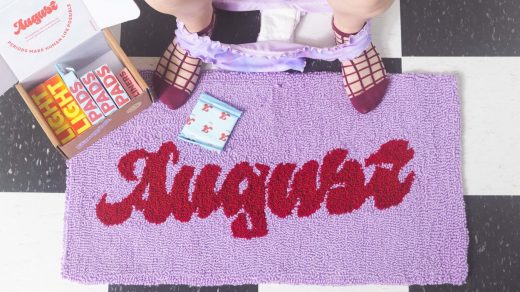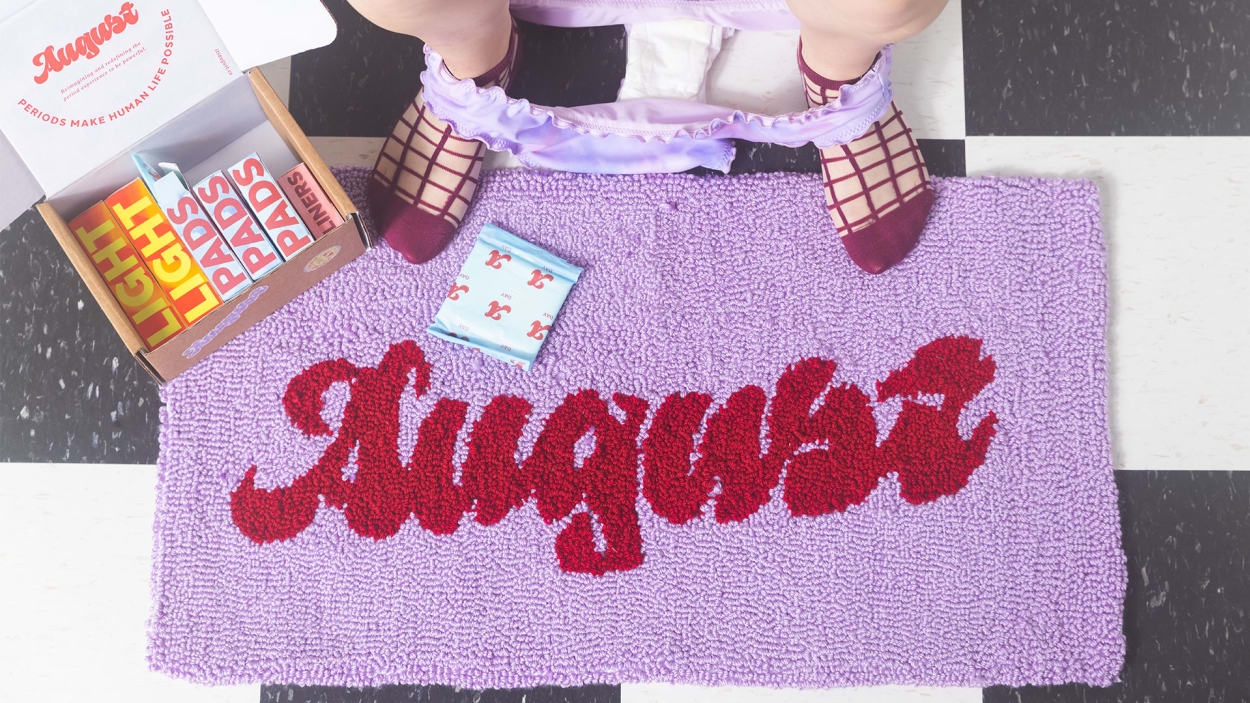Period stigma hurts health and productivity. This Gen Z CEO says it’s time to talk about it openly
Periods impact more than a quarter of the global population, and 80% of women say they’ve been less productive at work because of them. Yet only one in five are willing to talk to their employers about missing work because of period pain.
Twenty-four-year-old Nadya Okamoto wants to end period stigma. In fact, she’s the poster child for period empowerment. At 16 she started a nonprofit, Period, which distributed hygiene products to homeless people and advocated to end the tampon tax. When she was an undergraduate at Harvard University, she published Period Power: A Manifesto for the Menstrual Movement, which explores how the cultural forces around us shape our understanding of menstruation and menstrual stigma. It’s a smart dissection of how our society’s refusal to talk about menstruation and provide access to tampons and pads impacts people’s health, educations, and livelihoods.
Today, Okamoto is the cofounder and CEO of August, which sells sustainable period products. She’s been named to the Forbes 30 Under 30 and Teen Vogue 21 Under 21 lists.

On social media, Okamoto combines her sharp take on menstrual stigma as well as critiques of the patriarchy with photo shoots that make periods look glam and fun. While that might not be everyone’s experience of a menstrual cycle, it’s a refreshing change from silence and stigma. Okamoto chatted with me about what a period-positive workplace and society look like as she walked her dog through the winding streets of New York.
During the discussion, Okamoto combined mind-blowing visions of the future and analysis of the feminist economy with an easy personal style that left me hankering for more. (This transcript has been lightly edited for clarity.)
Fast Company: How did you become a period advocate?
Nadya Okamoto: I grew up with a single mom and two sisters. We all shared one bathroom. A lot of what I advocate for is having open conversations. Not being afraid of period blood starts from my home life—a stark contrast from the real world. I talked openly about periods at home and then middle-school boys found stuff in my backpack and I was teased for three years. I had this frustration about having to hide this in a world that doesn’t appreciate how natural and powerful it is.
From a career perspective, I started the nonprofit really eager to just get period products to primarily homeless and low-income menstruators. The more I learned, the more the organization started to grow into legislative advocacy: How do I give products to menstrators? How do I fundraise? [How do I] create a platform? Because legislative change is tied to social change and public opinion.
My favorite chapter of [my] book to write looked at ads for period products over the last century. I realized brands and capitalism have been responsible for perpetuating a lot of these ideas we have about menstrual stigma. If brands were able to create that stigma, then they might also be the solution to taking stigma down.
FC: How is August working to eradicate period stigma?
NO: The first step for us when we say “smash the stigma” is just to open up conversation. So it’s not saying, “Hey, here’s how you have to think about periods.” It’s just, “Hey, let’s talk about periods in the first place.” Let’s call out the fact that we’ve been using these stupid nicknames for it and just have open conversations about periods. As we start having open conversations about periods, we’re able to have conversations about period poverty, improvement of period products, and sustainability.
From an August perspective, the idea is people don’t have to think periods are this magical spiritual experience, but look at them in a factual way, which is that periods make human life possible. Periods are natural and powerful. We should not feel any shame about this.
FC: What does a period-positive workplace look like?
NO: It’s the antithesis of the overworked patriarchal capitalist workplace, which is the norm. So period products would be completely available, but I would take it a step further than that. Having your period is not just trying to find cotton things to absorb the blood. That’s a small part of it, but a fully comprehensive period-positive workplace would be acknowledging, What is the impact of the overall menstrual cycle and what are the symptoms? It can be pain, it can be mood.
One thing we do at August is we don’t have sick days. It’s an understanding of when you’re on your period, you need more rest. So if you need more rest, just take it. It’s not an official format; we don’t want to create any sort of guilt or formal process.
We’re starting to see more flexible workplaces with work-from-home and we can apply the same to periods. “I’m not feeling like I want to leave my house. I’m on my period.” Okay, cool. No questions asked. You do what’s best for your body.
You can look at this also from a gender-inclusivity perspective. If someone’s getting their period, and they’re not feeling supported—and it’s a really triggering time for them because they’re nonbinary or trans—then maybe the company needs to go a step further and support hormone replacement therapy.
FC: What are your thoughts on period leave, given that some menstruators do need time off but people also fear period leave could be used to discriminate against hiring women?
NO: Oh, I’ve debated this even as we’re building out our own company practices. We’ve seen examples where it’s been a good thing. And we have many examples where menstrual leave was harmful to menstruators of the workplace, [not] being promoted because of the assumption they aren’t working 25% of the month. I have a lot of feelings about this.
Rather than creating a menstrual leave with a set number of days, we need to reimagine workplaces and how we think about work versus rest. We need to push companies to trust employees to do work in their own time and rest when they need to. We need to create more of a culture where people believe in the work they are doing and get flexibility on deadlines and workload. That’s what happens in a period-positive culture. You can say “I’m having a rest” and the rest of the team will say “Take it easy.”
I’m fortunate in that I don’t have much period pain, but I do have some team members who do, and in no way will I ever count the number of days they take. We need to create a culture where there’s an open conversation and no one holds rest against you, because it’s not being counted and there isn’t a scarcity mindset.
I come from a nonprofit background, and I do get backlash about starting a venture-backed company, but I think that it’s also important to have these conversations in workplaces that work within an inherently capitalist system. How do you create workplaces that are supportive of menstruators and other things that don’t have a direct impact on ROI?
FC: How are you reconciling the gap between nonprofit work and a venture-backed company?
NO: I never thought I’d be here. I started college thinking I’d be a grassroots organizer, go to law school, and be a public defender. That changed. I fell in love with studying criticisms of capitalism. But then as a nonprofit, I was also part of the nonprofit industrial complex. I talk about the harm I believe large corporations are doing, but I need them as my donors. I was distributing 25 million-plus products while I was there, but these were all products donated by Procter & Gamble and Kotex. And there’s nothing wrong with that; the organization is still growing. But I really started to believe that companies were responsible for stigma issues.
With August, I struggle with climate guilt—we’re creating single-use products, but we’re not creating unnecessary products. I personally think consumerism in America is unavoidable. Gen Z is the biggest consumer. Through August we’re able to do things like make donations: Over Black Friday weekend, we donated 25% of sales and made a $15,000 donation. We can do leaps and bounds more than what I felt like I could do at a nonprofit level that is so grassroots and lends itself to burnout. But I do struggle with it: Am I doing the right thing? I love having these conversations because it’s ever-evolving.
FC: What do you think it will take for us to combat menstrual stigma as a society?
NO: It starts on an individual level. Even in the bathroom, with one menstruator leaning over to another saying, “Do you have a tampon?” and opening that beautiful conversation.
Education: I know so many menstruators who don’t know their basic anatomy. We need to provide comprehensive sex ed. Let’s educate people that periods are not full of harmful contaminants that make you sick. I get so many comments every day of people thinking they are biohazards.
Affinity groups are important at larger workplaces: Our business development team will talk to employee resource groups about offering period products, and often the groups will say they haven’t even thought about that. Productization is an obvious tangible conversation starter and also a concrete opportunity to bring to light that there are menstruators in the workplace and they have needs. But a lot of it is individual conversations. So much of it is ripping off the Band-Aid of telling a period story and starting the conversation.
FC: What advice do you have for someone else who is working to combat stigma?
NO: A lot of it is just to keep going. It’s exhausting. There’s a lot. Fighting the status quo of stigma means that there’s a lot of pushback. Probably five times a day, I have this feeling of, Wow, I’m just gonna give up. I want to live a quiet life. I try to encourage people to keep going, because it is really beautiful, fun to work to do. And I’m happy to play a small part of that.
(38)



